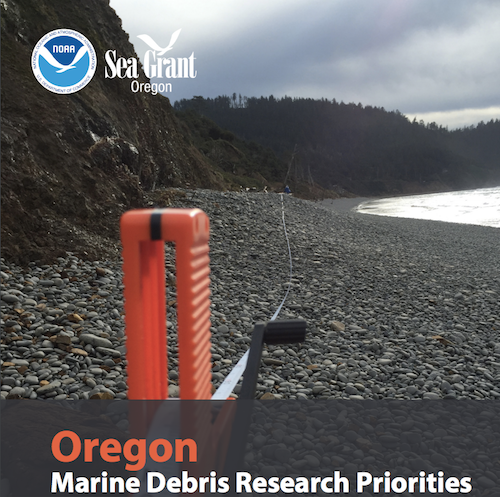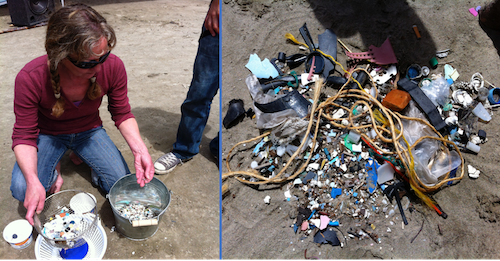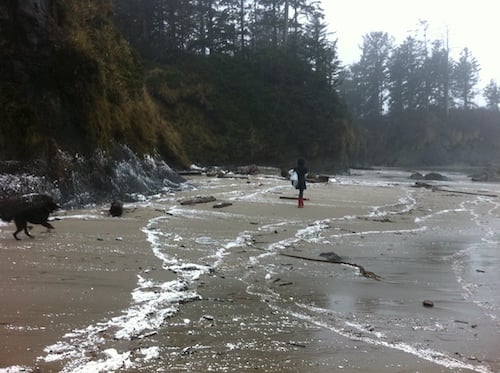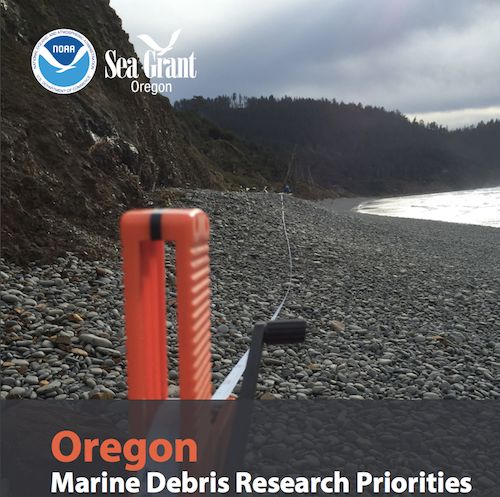
Interested in doing marine debris research in Oregon? Then you might be interested to know that Oregon's state and federal agencies, in cooperation with other marine debris practitioners in the state have developed a list of priority research questions for informing marine debris actions and potential policies in Oregon. This is a great opportunity for interested researchers and/or graduate students to develop marine debris projects and proposals that could help us inform and develop strong plastic pollution policies for the state to reduce marine debris!
In April 2017, the Oregon Marine Debris Action Plan was finalized. A major campaign effort for Surfrider Foundation Chapters in Oregon, the plan called for a number of future actions for Oregon marine debris state and federal agencies and NGO partners to advance. A primary action that Surfrider members and the Ocean Policy Advisory Council have advocated for is local research to inform and advance marine debris statewide policies and reduction strategies. Specifically, the Action Plan calls for Oregon to: Develop research priorities for marine debris in Oregon with a focus on sources and reduction strategies. Encourage research to quantify and prevent the impact of marine debris.
 Newport Surfrider volunteer Laura Neary sorts plastic debris during a cleanup at Otter Rock Marine Reserve
Newport Surfrider volunteer Laura Neary sorts plastic debris during a cleanup at Otter Rock Marine Reserve
In the spring of 2017, just one month after the completion of the statewide Action Plan, the NOAA Marine Debris Program, Oregon Sea Grant, Oregon State University, and EPA partnered with Surfrider Foundation and other Oregon marine debris practitioners and researchers to review the research priorities generated for the Action Plan, and in a workshop, discuss the research priorities and rank them. Visit NOAA's Oregon Marine Debris Action Plan page to learn more or you can directly download the research priorities here.
 Not snow, plastic! This beach in Coos Bay is covered in polystyrene from a dock that floated out of a nearby Charleston Harbor. Future marine debris policies may help prevent these sorts of environmental disasters.
Not snow, plastic! This beach in Coos Bay is covered in polystyrene from a dock that floated out of a nearby Charleston Harbor. Future marine debris policies may help prevent these sorts of environmental disasters.
For Surfrider Foundation Chapters in Oregon, these research priorities align strongly with our national and state priorities for reducing plastic pollution and marine debris. We've already begun work to incorporate more research into our beach cleanup programs to support research priority number 1, below are just the top 6 priorities for marine debris research in Oregon developed out of the workshop:
- Identify the sources, quantity, and types of marine debris in Oregon.
- Evaluate the impact of marine debris on Oregon's ecosystems.
- Evaluate the impact of microplastics on Oregon's ecosystems.
- Develop and evaluate a matrix to prioritize marine debris cleanup in Oregon based on debris accumulation and area sensitivity.
- Investigate best approaches for working with industry to reduce plastic waste, especially packaging.
- Evaluate the efficacy of marine debris prevention efforts, including education and outreach, legislation and regulation, upstream capture devices, etc.

